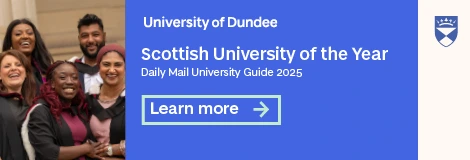Whether you take a gap year to explore your passions, work, gain life experience, or travel, taking a gap year can be a transformative experience.
Taking a gap year, a break typically taken by students before entering college or after completing their education, offers a range of benefits and drawbacks. This period, usually a year, provides an opportunity for personal growth, self-discovery, and gaining unique experiences outside the traditional academic setting. However, while a gap year can be immensely rewarding, it also presents challenges, such as potential academic setbacks or disruptions in career timelines.
Understanding the pros and cons of a gap year is crucial in making an informed decision about whether it aligns with one's goals and aspirations. Learn more below.

What is a Gap Year?
A gap year is like a break before going to college, starting your career, or between your undergraduate and postgraduate degrees. It's usually a year-long break, but it can be shorter. During this time, you can do various things like travel, work, volunteer, or pause studying. It's a chance to explore your interests, gain new experiences, and grow. Some people use this time to save money, while others use it to learn new skills.
Gap years can be a fantastic opportunity to discover your passion and prepare for the next chapter of your life. However, they also come with challenges and choices, so it's important to consider the pros and cons of taking one before making your decision.
Pros of Taking a Gap Year
1. Exploring Passions
A gap year allows you to rediscover your true interests and hobbies, reflect on your passions and potentially set a new life course. The pressure to excel academically can overshadow many students' interests and talents. A gap year offers the time to explore these interests in depth.
During your gap year, you can delve into various activities that may have taken a backseat due to academic commitments. This can include pursuing artistic endeavours, sports, or even starting a small business. By immersing yourself in these activities, you can better understand what truly fulfils you.
2. Financial Preparation
University life is undeniably expensive, with tuition fees, accommodation, and living expenses adding up quickly. Many students find themselves burdened by student loans and financial stress. Taking a gap year to work can be an effective strategy to alleviate some of these financial concerns.
Working during your gap year allows you to accumulate funds that can ease the financial burden of university life. These savings can cover tuition, housing, and daily expenses. By having a financial safety net, you'll enter university with greater confidence and less financial stress.
3. Impressive CV Addition
With the right plan, a well-spent gap year can enhance your CV by offering valuable skills and life experiences that impress future employers. This advantage of a gap year is especially appealing to those who plan to enter competitive job markets or industries that value practical experience.
To make the most of this opportunity, consider the following options:
- Work Experience: Securing a job in your field of interest can provide hands-on experience and a network of professional contacts. Whether it's an internship, part-time job, or apprenticeship, work experience can give you a head start in your chosen career.
- Volunteering: Volunteering for a reputable organisation allows you to give back to the community while gaining relevant skills and experience. Employers often appreciate candidates who are socially responsible and have a history of volunteer work.
- Travel and Cultural Immersion: Traveling during your gap year can broaden your horizons and make you more adaptable, which are skills highly valued by employers in our globalised world. Immersing yourself in different cultures, learning new languages, and experiencing diverse work environments can set you apart from other candidates.
- Personal Projects: If you have a passion project or a business idea, your gap year is the perfect time to pursue it. Starting a small business, launching a creative project, or writing a book can be impressive additions to your CV.
- Online Courses: In today's digital age, numerous online courses and certifications are available. Taking relevant courses during your gap year can demonstrate your commitment to self-improvement and your field of interest.
4. Once-in-a-Lifetime Experience
Gap years offer a unique opportunity to explore the world and gain life experiences that may be harder to come by once you start your career. This is your chance to step out of your comfort zone, try new things, and create lasting memories.
Travelling during your gap year can expose you to diverse cultures, breathtaking landscapes, and incredible people. Whether you travel across Europe, explore the Amazon rainforest, or immerse yourself in the vibrant culture of Asia, the experiences you gain are irreplaceable.
5. Better Prepared for University
The life lessons and independence gained during a gap year can better prepare you for the challenges of university life. Transitioning from high school to university can be overwhelming, especially regarding time management, self-discipline, and adapting to a more autonomous learning environment.
A well-structured gap year can help you acquire crucial life skills. For example:
- Time Management: During your gap year, you'll need to plan your activities, whether they involve work, travel, or personal projects. This experience can significantly improve your time management skills, which are essential for academic success.
- Independence: Being away from the structured school environment can help you develop a sense of independence. You'll learn to make decisions, solve problems, and take responsibility for your actions.
- Adaptability: Gap years often involve navigating new and unfamiliar situations. Adapting to different cultures, work environments, and lifestyles can prepare you for the diverse experiences you'll encounter in universities in the UK.
- Self-Discovery: Exploring your interests and passions during your gap year can help you clearer understand what you want to study in university. This self-discovery can also help you choose a major that aligns with your passions and career goals.
Cons of Taking a Gap Year
1. Academic Momentum Risk
Taking a year off might lead to losing academic momentum, making it challenging to transition back to your studies. For some students, the structured environment of high school provides a routine that helps maintain academic focus. A gap year can disrupt this routine, potentially leading to academic complacency.
To mitigate this risk, consider the following strategies:
- Stay Engaged Academically: Even during your gap year, it's essential to keep your academic skills sharp. You can take online courses, read educational materials, or engage in self-study to ensure your knowledge doesn't erode.
- Plan Your Return: Before embarking on your gap year, create a detailed plan for your return to academic life. Set clear goals for your first semester back, and consider connecting with academic advisors to ensure a smooth transition.
- Maintain a Routine: Establishing a daily routine during your gap year can help you stay disciplined. Regular exercise, reading, or other productive activities can engage your mind.
2. Potential Time Wasting
Without a clear plan, a gap year can result in unproductive use of time, which may not look appealing on your CV. A gap year is only beneficial when it is structured and purposeful. If you spend the year idly binge-watching TV shows or engaging in unproductive activities, it can hinder your personal and professional growth.
To avoid wasting time, set specific goals for your gap year. Consider the following strategies:
- Create a Gap Year Plan: Before starting your gap year, outline your goals and activities. Whether you're working, travelling, volunteering, or working on personal projects, having a plan ensures your time is well spent.
- Seek Mentorship: Connect with mentors or professionals in your field of interest who can guide you during your gap year. Their insights and advice can help you stay on track and maximise your time.
- Regular Self-Assessment: Periodically evaluate your progress. Reflect on your achievements and adjust your goals if necessary. This self-assessment will help you stay motivated and avoid wasting time.
3. High Costs of Travel
Travelling during your gap year can be expensive, especially if not planned meticulously, potentially straining your finances. Exploring the world comes with a price tag, encompassing airfare, accommodation, food, activities, and more. The expenses can add up quickly, leaving you with financial challenges.
To manage the costs of travel during your gap year, consider the following strategies:
- Budgeting: Create a detailed travel budget, accounting for all expenses, and stick to it.
- Savings: Start saving early through part-time work or freelance gigs. Seek scholarships and grants for gap year travellers.
- Travel Scholarships: Research scholarships for gap year students, offering financial support.
- Working Abroad: Find opportunities like teaching or seasonal jobs to fund your travels.
4. Falling Behind Your Peers
A gap year can delay your entry into university life, potentially making you feel out of sync with friends who have already started their academic journey. While taking a gap year offers numerous benefits, it's essential to consider the potential social and academic consequences.
To address the challenges of falling behind your peers, follow these recommendations:
- Stay Connected: Maintain communication with your friends and peers who have started university. Attend reunions and gatherings during your gap year to stay socially connected.
- Use the Time Wisely: While it may seem like you're "falling behind," remember that a well-spent gap year can equip you with valuable skills and experiences that can give you a competitive edge when you return to university.
- Focus on Your Goals: Remember your long-term goals. A gap year can clarify your academic and career path, ultimately benefiting your future.
5. Risk and Uncertainty
Like any major decision, taking a gap year involves risks, and unforeseen challenges can arise. Various factors can disrupt your gap year plans, from health issues to personal circumstances.
To mitigate risks and uncertainties, consider the following:
- Gap Year Insurance: Invest in comprehensive gap year insurance that covers various aspects of your journey, including health, travel disruptions, and unforeseen circumstances.
- Flexibility: Be prepared to adapt and change your plans as needed. Flexibility is a key asset for gap year travellers, allowing you to navigate unexpected challenges effectively.
- Regular Communication: Regularly communicate with your support network, such as family, friends, and mentors. They can offer guidance and assistance during challenging times.
- Research and Preparation: Conduct thorough research on your destination, including local customs, safety precautions, and potential risks. Being well-prepared is your best defence against uncertainty.
What to Do in a Gap Year: Ideas for Indian Students
The United Kingdom is an amazing destination for an enriching gap year experience. Whether you opt for self-planning or seek guidance from reliable organisations, here are some detailed ideas and resources for your gap year in the UK:
- Volunteering: The UK provides diverse volunteering opportunities, from supporting charities to aiding community groups or assisting the elderly. Volunteering lets you make a positive impact while gaining valuable experiences and skills.
- Travel: Despite the UK's reputation for rainy weather, it offers a variety of places to explore, from the Scilly Isles to the Cotswolds.
- Paid Employment: Earning money during your gap year is practical. The UK offers agency work, corporate internships, and summer placements. Tailor your job search to your skills and interests.
- Work Experience: Gain field-specific experience, even if some roles are unpaid, to build a foundation for your future career. Research organisations offering relevant work experience and seek professional guidance.
- Part-Time Courses: Broaden your knowledge by enrolling in part-time courses. Consider courses like IELTS preparation to enhance employability and open doors to international work.
- Language Learning: Enhance your language skills, whether improving English or exploring a foreign language. Proficiency in languages boosts employability and enables international opportunities.
- Try New Sports: Explore various sports, from traditional to niche activities. Sports promote fitness, teamwork, discipline, and perseverance, enriching your gap year experience in the UK.
FAQ
Can anyone take a gap year, or are there specific eligibility criteria?
Anyone can take a GAP year. There are no strict eligibility criteria. It's a personal choice; you can take a year off from education or work to explore other opportunities.
Do colleges and universities support gap years?
Some colleges and universities support gap years. They recognise the value of experiential learning and may offer deferment options, allowing accepted students to delay their enrollment for a year to pursue a GAP year. However, policies vary among institutions.
How much gap is accepted for study in India after the 12th?
In India, a one—or two-year gap after completing the 12th grade is accepted, but it's essential to check the specific admission requirements of the institution to which you plan to apply.
What should you consider before deciding to take a gap year?
Before taking a GAP year, consider your goals for the year. Think about your goals and how they align with your plans. You should also assess your financial situation and create a budget for the year.
How do you plan a productive and meaningful gap year?
Planning a productive GAP year involves setting clear goals, both personal and professional. Creating a budget to manage your finances during the year is essential. Choose activities that align with your interests and aspirations, such as travelling, volunteering, or gaining work experience.
Which country accepts a 10-year study gap?
Many countries accept a 10-year study gap, but acceptance can depend on the specific circumstances and visa requirements. Countries often evaluate applicants on a case-by-case basis, considering factors like the reason for the gap and the nature of the course or programme they intend to pursue.
Are there any personal growth benefits to taking a gap year?
Yes, taking a GAP year can lead to significant personal growth. It provides opportunities for new experiences, building independence, and discovering your passions and interests. It can help you gain a broader perspective on life and contribute to your overall personal development.


 I sincerely thank SI-UK for getting me accepted to UCL. The MSc in Urban Development and Planning is extremely competitive, but the right guidance provided by SI-UK made my dream of studying at University College London a reality. The services were exceptional from beginning to end.
I sincerely thank SI-UK for getting me accepted to UCL. The MSc in Urban Development and Planning is extremely competitive, but the right guidance provided by SI-UK made my dream of studying at University College London a reality. The services were exceptional from beginning to end. 

